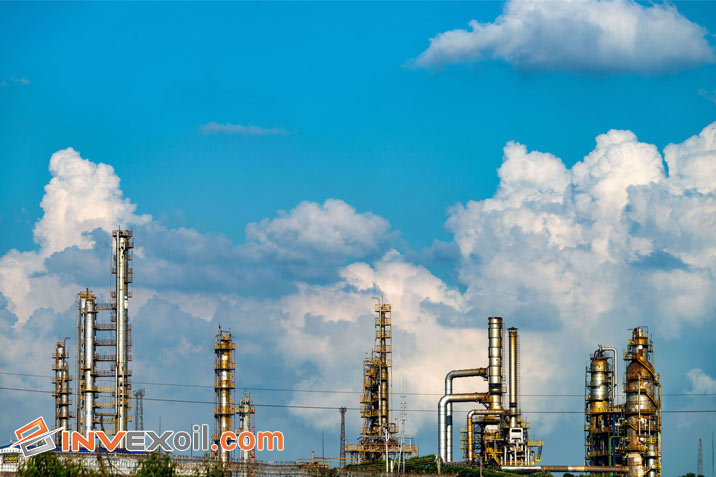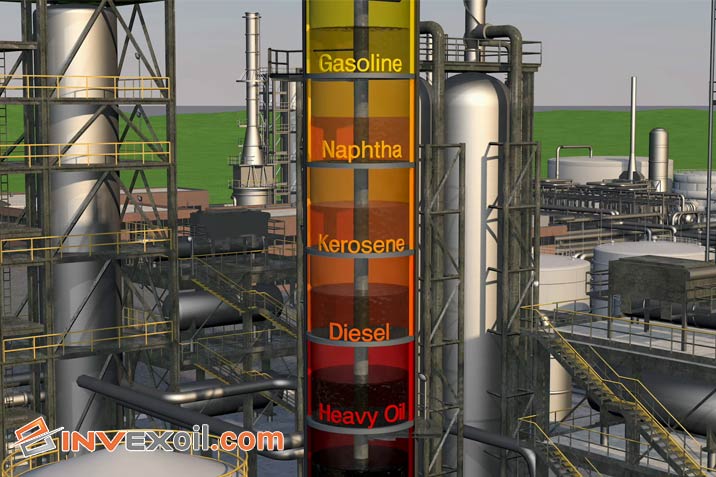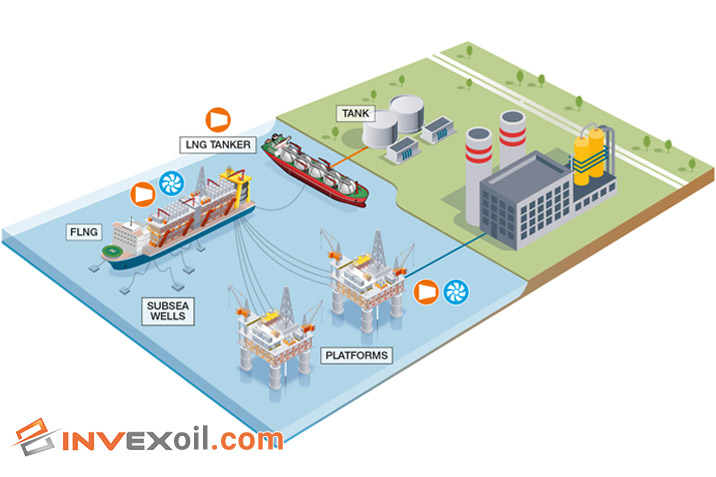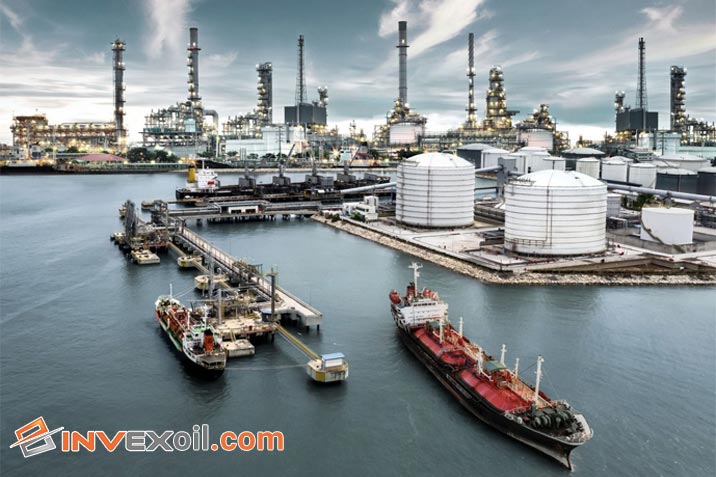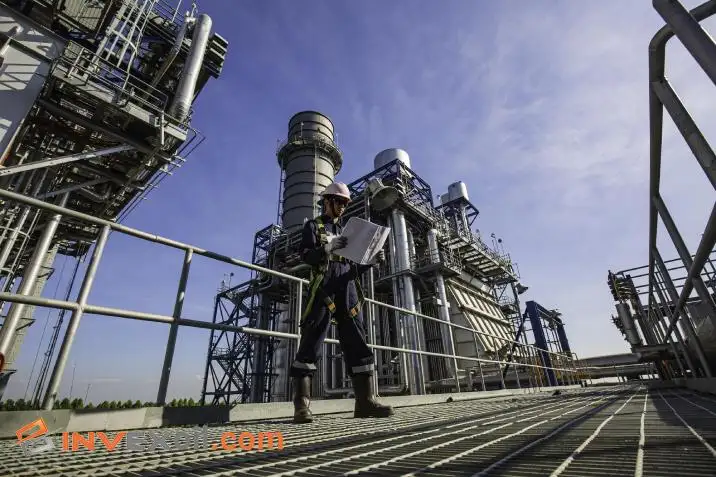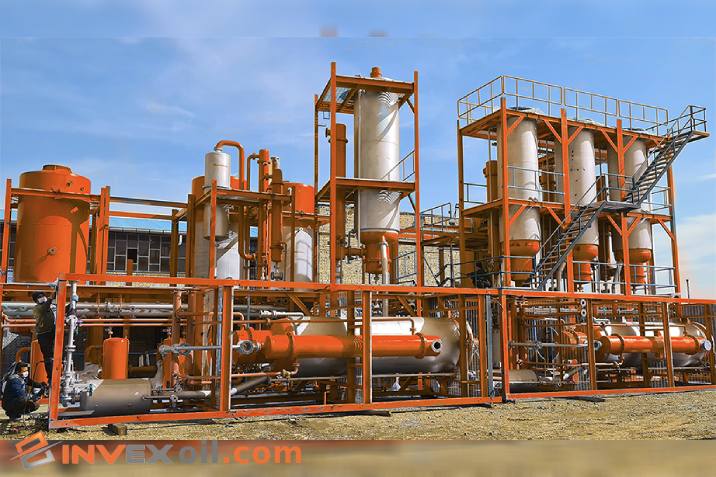Understanding the process of refining crude oil into gasoline is crucial in comprehending the broader scope of used oil re-refining. By delving into how crude oil undergoes a series of refining techniques and processes, including distillation, catalytic reforming, and fluid catalytic cracking, etc. we gain valuable insights into the transformation of crude oil into gasoline.
Used oil re-refining, on the other hand, focuses on repurposing and reprocessing previously utilized oil to extract valuable components, offering a sustainable approach to resource management. In this article, we will explore the intricate details of how is crude oil refined into gasoline while touching upon the innovative practices of used oil re-refining.
Table of Contents
Understanding the Refining Processes
The refining process is vital for converting crude oil into high-quality gasoline. Through techniques like distillation, catalytic reforming, and fluid catalytic cracking, etc. Crude oil is purified and transformed. Refinery units, such as atmospheric and vacuum distillation units, play essential roles in this process. In the upcoming sections, we’ll explore these techniques and units in detail, unraveling the journey from crude oil to the gasoline we rely on.
The Composition of Crude Oil
Crude oil is a complex mixture of various hydrocarbons. Exploring the chemical makeup of crude oil allows us to understand its diverse components and their relevance to the refining process. It consists of different hydrocarbon chains, ranging from small, light molecules to large, heavy ones. These chains determine the properties and characteristics of the crude oil.
Exploring the Chemical Makeup of Crude Oil
Crude oil primarily contains hydrocarbons, which are organic compounds composed of hydrogen and carbon atoms. It also contains traces of impurities such as sulfur, nitrogen, and metals. The hydrocarbon chains in crude oil can vary in length and structure, giving rise to different types of hydrocarbons like alkanes, cycloalkanes, and aromatic compounds. Each component has its own unique properties and behavior during the refining process.
Key Properties of Crude Oil Relevant to Refining
The properties of crude oil significantly influence the refining process. The density and viscosity of crude oil affect its flow and ease of processing. The sulfur content is an essential consideration as high sulfur levels can lead to increased emissions during refining. Another crucial property is the API gravity, which indicates the oil’s density compared to water. Crude oil with a higher API gravity is typically lighter and easier to refine into gasoline.
Crude Oil Properties and their Significance are gathered in this table. We can use this information to be closer to answer of how is oil refined into gasoline.
| Property | Significance |
| Density | Influences flow and processing of crude oil |
| Viscosity | Impacts ease of handling and refining |
| Sulfur Content | Affects environmental impact of refining |
| API Gravity | Indicates crude oil’s density and quality |
Refining Techniques | How is crude oil refined into gasoline?
Discover the intricate methods employed in refining crude oil into gasoline with a variety of advanced techniques. Each step plays a crucial role in the transformation process.
To find out more about how is oil refined into gasoline, there is a table of Overview of Refining Techniques and Processes for you.
| Refining Technique | Description |
| Distillation | Separates crude oil components based on boiling points |
| Catalytic Reforming | Enhances gasoline quality by rearranging hydrocarbon molecules |
| Fluid Catalytic Cracking | Breaks down complex hydrocarbons into smaller molecules |
| Alkylation | Boosts gasoline octane levels by combining molecules |
| Isomerization | Rearranges hydrocarbon molecules for improved efficiency |
| Hydrocracking | Converts heavy hydrocarbons into high-quality fuels |
Distillation: The Initial Step in Crude Oil Refining
Distillation is the primary technique in oil refining, separating crude oil components based on their boiling points. This process enables the extraction of different hydrocarbon fractions, including gasoline.
Catalytic Reforming: Enhancing the Quality of Gasoline
To understand about answer of how is oil refined into gasoline, we have to read more about Catalytic reforming process. Catalytic reforming is a key process that improves gasoline quality. By rearranging hydrocarbon molecules, it enhances octane levels and overall performance, resulting in better fuel efficiency.
Fluid Catalytic Cracking: Breaking Down Complex Hydrocarbons
Fluid catalytic cracking breaks down complex hydrocarbons into smaller, more valuable molecules. This technique increases gasoline yield while producing other valuable products like diesel and jet fuel.
Alkylation: Boosting Octane Levels
Alkylation is employed to boost the octane levels of gasoline. By combining small olefin molecules with isobutane, it produces high-quality gasoline with improved combustion properties.
Isomerization: Rearranging Molecules for Efficiency
Isomerization is utilized to rearrange hydrocarbon molecules, particularly straight-chain molecules, into branched isomers. This enhances gasoline’s efficiency and combustion characteristics.
Hydrocracking: Producing More High-Quality Fuels
Hydrocracking is a sophisticated process that breaks down heavy hydrocarbons into lighter, high-quality fuels like gasoline. It involves the use of hydrogen and catalysts to achieve efficient conversion.
These refining techniques, including distillation, catalytic reforming, fluid catalytic cracking, alkylation, isomerization, and hydrocracking, contribute to the comprehensive process of transforming crude oil into gasoline. Understanding these processes sheds light on the intricate journey of refining oil into the fuel that powers our daily lives.
The Role of Refinery Units
Discover the crucial refinery units that play a vital role in the process of refining crude oil into gasoline. Each unit has its specific function in transforming the raw material into valuable petroleum products.
Overview of Refinery Units and their Functions can help us to understand how is crude oil refined into gasoline question. This table can help you with that.
| Refinery Unit | Function to know more about how is crude oil refined into gasoline |
| Atmospheric Distillation | Separates crude oil into different fractions |
| Vacuum Distillation | Extracts additional petroleum products |
| Fluid Catalytic Cracking | Converts heavy oils into lighter, more valuable products |
| Alkylation | Boosts octane levels and improves gasoline quality |
| Isomerization | Rearranges hydrocarbon molecules for increased efficiency |
| Hydrocracking | Converts heavy hydrocarbons into high-quality fuels |
Atmospheric Distillation Unit: Separating the Crude Oil
The atmospheric distillation unit is the initial step in refining crude oil. It utilizes varying boiling points to separate the oil into different fractions, such as gasoline, diesel, and heavier components.
Vacuum Distillation Unit: Extracting More Petroleum Products
The vacuum distillation unit complements the atmospheric distillation process by operating under reduced pressure. This enables the extraction of additional petroleum products, including lubricating oils, waxes, and asphalt.
Fluid Catalytic Cracking Unit: Transforming Heavy Oils
The fluid catalytic cracking unit plays a vital role in converting heavy oils into lighter, more valuable products like gasoline. Through the use of heat and a catalyst, complex hydrocarbons are broken down into smaller, more useful molecules.
These refinery units, including atmospheric distillation, vacuum distillation, and fluid catalytic cracking, are integral components of the oil refining process. Together, they work harmoniously to transform crude oil into the gasoline that powers our vehicles and fuels our daily lives.
Hydrotreating Unit: Enhancing the Quality of Products
The hydrotreating unit plays a crucial role in refining processes and help us to know more about how is crude oil refined into gasoline. Hydrotreating unit process where hydrogen is used to remove impurities and improve the quality of petroleum products. It helps remove sulfur, nitrogen, and other contaminants, resulting in cleaner and environmentally friendly fuels. By optimizing the hydrotreating process, the overall performance and efficiency of gasoline production are enhanced, ensuring high-quality end products for consumers.
Alkylation Unit: Producing High-Octane Gasoline
In the alkylation unit, the focus is on producing gasoline with high octane ratings, which is essential for optimal engine performance. Through the alkylation process, low-molecular-weight olefins, such as propylene and butylene, are combined with isobutane to create branched-chain hydrocarbons. This reaction produces gasoline components with excellent anti-knock properties, resulting in high-performance fuels that are suitable for modern engines.
Isomerization Unit: Creating Isomers for Better Performance
The isomerization unit plays a crucial role in refining operations by transforming straight-chain hydrocarbons into their respective isomers. This process enhances the performance of gasoline by improving its octane rating and reducing knocking tendencies. By converting n-paraffins into their branched-chain isomers, the isomerization unit contributes to the production of cleaner-burning fuels, enabling better engine efficiency and reducing harmful emissions.
Hydrocracking Unit: Converting Heavy Oils into Lighter Products
The hydrocracking unit is responsible for converting heavy oils, such as vacuum gas oil or residuum, into lighter and more valuable products. Through the application of high temperature and pressure, along with the presence of catalysts, hydrocracking breaks down complex hydrocarbon molecules, resulting in the production of lighter fuels, such as gasoline, diesel, and jet fuel. This process enhances the overall yield of high-quality products, meeting the growing demand for efficient and cleaner-burning fuels.
Conclusion
In conclusion, this article has explored the fascinating process of how is oil refined into gasoline, providing valuable insights into the various refining techniques and units involved. We have examined the role of refinery units such as atmospheric and vacuum distillation, fluid catalytic cracking, hydrotreating, alkylation, isomerization, and hydrocracking. Additionally, we have discussed environmental considerations, gasoline quality standards and testing, as well as the global oil refining industry. By understanding these concepts, readers gain a comprehensive understanding of how oil is transformed into gasoline, ensuring high-quality fuel that meets stringent standards. Stay informed about the latest industry trends and developments to contribute to a sustainable and efficient oil refining sector.
FAQ
These questions are the most commonly asked about this topic of how is oil refined into gasoline. You can find your answers below:
How is crude oil refined into gasoline?
Oil is refined into gasoline through a complex process involving distillation, cracking, and treatment to separate and transform crude oil into various petroleum products, including gasoline.
What are the main steps in refining oil into gasoline?
The main steps include atmospheric and vacuum distillation to separate crude oil, followed by processes such as catalytic cracking, hydrotreating, and blending to convert and enhance the quality of the oil into gasoline.
What are the environmental considerations in oil refining?
Environmental considerations in oil refining involve managing air emissions through control measures, proper waste management and minimization techniques, and implementing water conservation and treatment processes to reduce the industry’s environmental impact.

Hello, This is Matteo Hudson Copywriter from InvexOil. We are here to provide super-important content to help you learn more easily and be involved in the world of Petroleum and Chemistry. We are here to answer your questions, help you to have better services, and also find the best solution for your problems. Don’t be shy and ask your questions in the comment box or call our number. If you want to connect with me directly, you can search for my name on Linkedin.

